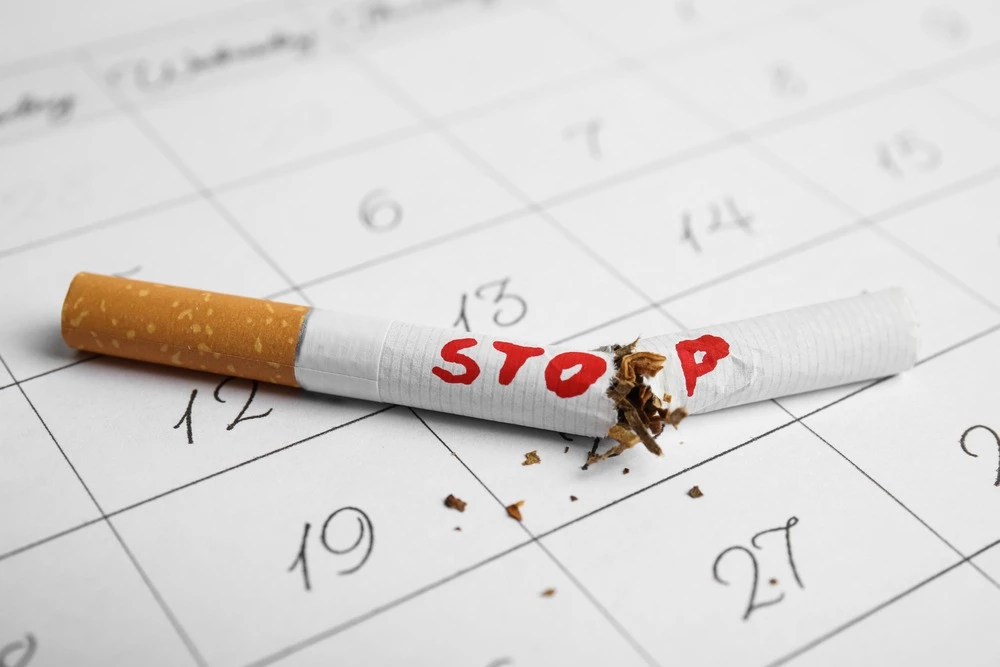
No Smoking: 10 Reasons to Quit Smoking Before and After Surgery
There are over 1.3 billion smokers worldwide, according to the World Health Organization! According to the same organization, 8 million people die annually worldwide due to smoking, in addition to tobacco cultivation causing the destruction of approximately 3.5 million hectares of agricultural land each year. Furthermore, 4.5 trillion cigarette butts that are not properly disposed of generate 1.69 billion pounds of toxic waste, releasing thousands of chemicals into the air, water, and soil. All of these, among other disasters, are caused by tobacco annually, and these reasons alone may be sufficient to quit smoking immediately. However... The undeniable truth is that smoking is addictive because nicotine provides a quick and pleasurable effect to the smoker's brain, albeit temporary, which quickly leads to the need for another cigarette to experience the same effect.
Nicotine gives this sensation to the smoker because it increases the release of neurotransmitters and dopamine in the brain, resulting in a feeling of pleasure. The more one smokes, the more they need to smoke!
If a smoker - unable to quit - needs to undergo a general or cosmetic surgery, it should be clarified that undergoing surgery for smokers is not an easy matter. Despite many people disregarding the instructions to quit smoking before surgery, it negatively affects the procedure and exposes the patient's life to real danger. The smoker may not feel the impact of smoking on their heart and lungs, and they may not be aware that cigarettes contain over 4,500 harmful chemicals.
Here are 10 reasons to quit smoking completely before undergoing surgery:
Here are 10 reasons to quit smoking completely before undergoing surgery:
- It affects how the body responds to surgery and increases post-surgical complications.
- It reduces blood flow, slowing down wound healing.
- It weakens the immune system, increasing the risk of post-surgical infections.
- It impacts the heart and lungs, increasing respiratory risks during surgery.
- Smoking prior to anesthesia can lead to respiratory problems, necessitating higher doses of anesthesia.
- There is an increased risk of complications and implant failure in cosmetic surgeries, such as breast augmentation.
- Studies have shown that smoking has more than doubled the risk of cardiac and pulmonary complications compared to non-smokers after surgery.
- Smoking increases the risks of complications and mortality within 30 days after surgery, and the more a patient smokes, the higher the risks.
- Smoking affects the immune system, as nicotine, carbon monoxide, and other toxins present in smoke increase the risk of heart attacks and strokes.
- Smoking affects the bone healing process after surgery.
How does smoking directly affect the heart and lungs?
• Impact on the Heart: Carbon monoxide combines with red blood cells, reducing their ability to transport oxygen, resulting in decreased oxygen flow to the lungs and all other cells. Carbon monoxide makes the heart pump more frequently, reducing the amount of oxygen delivered to the rest of the body. Even more dangerous is that nicotine, produced by smoking, increases the body's demand for oxygen, further elevating the risk.
• Impact on the Lungs: Smoking damages the airways and small air sacs in the lungs, leading to chronic bronchitis and emphysema. The harmful chemicals in tobacco smoke cause inflammation and scarring in the lungs, reducing their capacity to absorb oxygen and release carbon dioxide. Over time, smoking can lead to respiratory problems, reduced lung function, and an increased risk of developing lung cancer and other respiratory diseases.
• Impact on the Lungs: Smoking increases the production of mucus while reducing the lungs' ability to clear these secretions effectively. The small airways in the lungs become narrow, making the lungs more susceptible to inflammation, infections, coughing, and respiratory complications. Due to the heightened sensitivity of smokers' lungs, there is a possibility of experiencing bronchospasm and severe complications.
All the reasons and risks mentioned should make you seriously consider quitting smoking before surgery. To successfully quit smoking, you can use the date of your scheduled surgery as a motivation to set a quitting date. Quitting smoking two days before the surgery can make a significant difference, as it allows the body to receive more oxygen to the cells, improves blood flow, and makes healing easier. Imagine the impact of quitting two weeks before the surgery!
Why You Should Quit Smoking Before and After Surgery?
